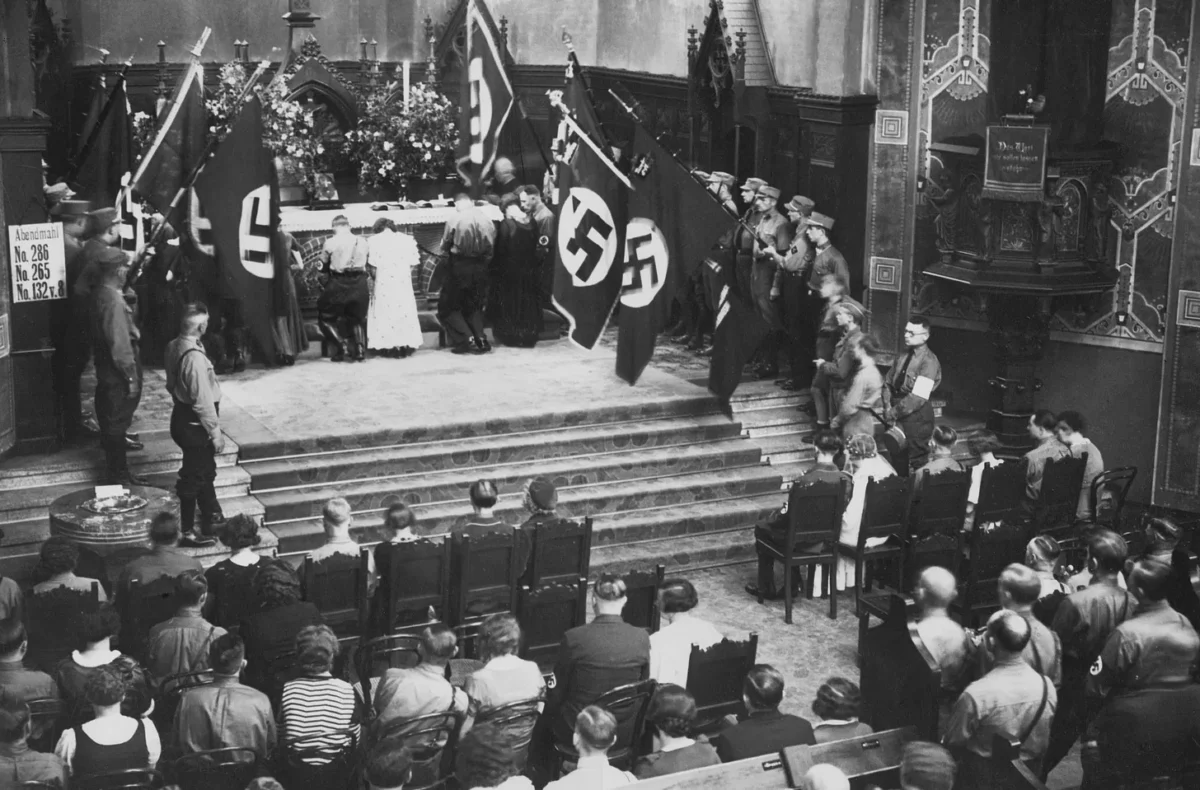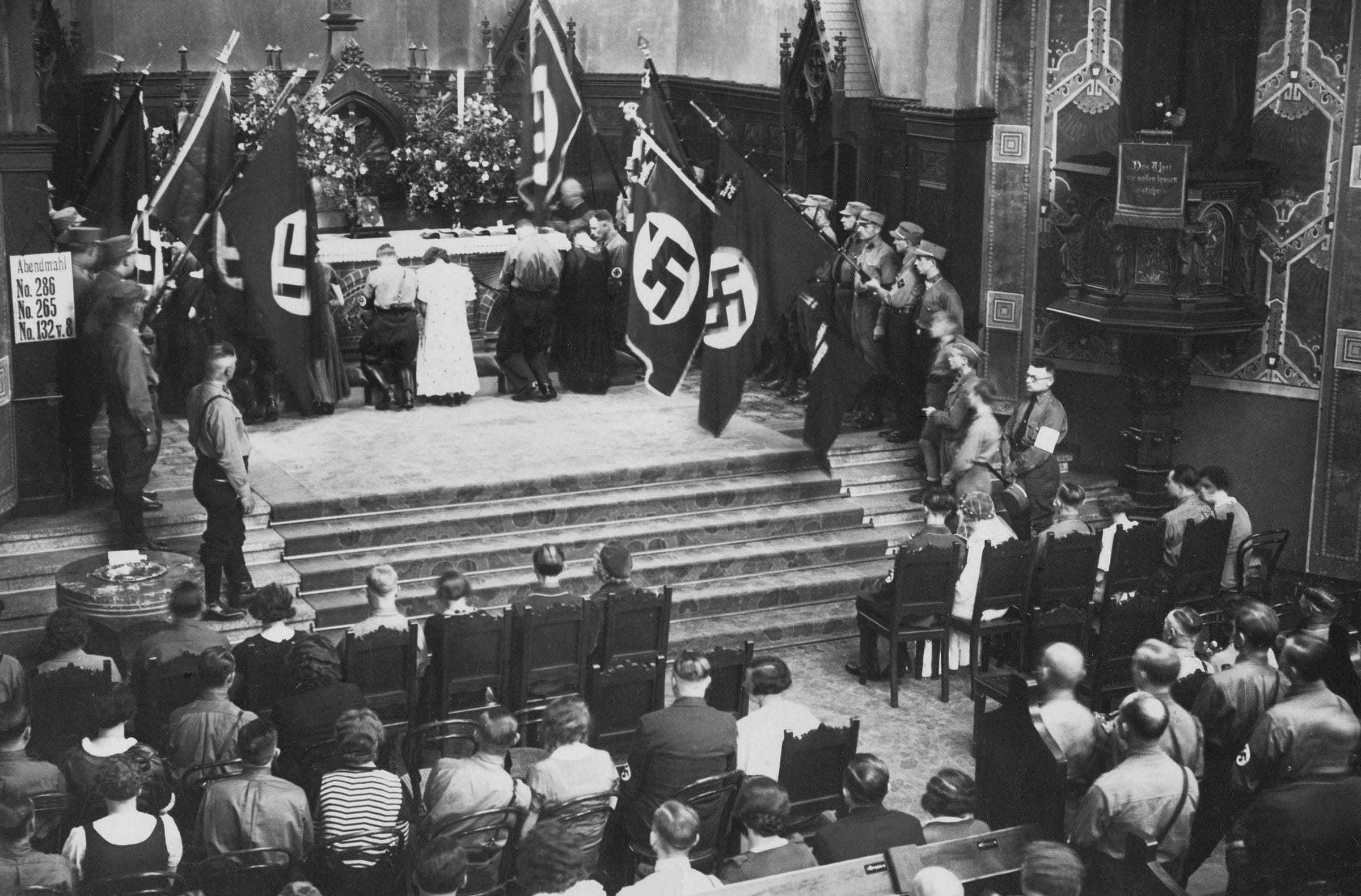
On May 31, 1934, a group of German pastors wrapped up a three-day meeting in the Barmen quarter of Wuppertal, Germany, to discuss concerns about faith, government, and nationalism. The gathering’s main product released 90 years ago was the Barmen Declaration, a confessional statement to capture the theological and political dangers of the moment. The prophetic statement deserves our attention still today.
The Barmen Declaration, primarily the product of theologian Karl Barth, was an impressive statement early in the Nazi regime. Adolf Hitler had assumed control of Germany in January 1933. Within two months, he had already put the nation on the path toward a dictatorship with new powers to create his own laws. By July, the Nazis were the only legal political party in the country.
But the worst of the Nazi regime was still years away. Hitler wouldn’t take over Austria and Czechoslovakia until 1938 and wouldn’t invade Poland and start World War II until 1939. Although the Nazis started passing anti-Jewish measures in 1933, it took years for it to build toward the Holocaust. The Nuremberg Laws that stripped German Jews of citizenship came in 1935. Kristallnacht (the “night of broken glass”), a violent Nazi pogrom against Jews in Germany and Austria, occurred in 1938. The systematic effort to kill Jews in the Holocaust started in 1941.
But before most of that, a dissenting group of German Christians gathered in May 1934 in the same community where the first Nazi concentration camp had opened in July 1933 to house and torture political prisoners. The dissenting Christians came together not merely out of political concerns. Even more so, they worried about the dangers of the state taking over churches and rewriting theology.

A wedding ceremony in a Lutheran church in Berlin, Germany, on Dec. 31, 1932. (Scherl/Süddeutsche Zeitung Photo/Alamy)
Just as Hitler worked quickly in 1933 to start increasing his dictatorial powers and to start persecuting Jews, his regime also almost immediately sought to gain control over the nation’s churches. In April 1933, the leadership of the German Evangelical Church Confederation — which brought together Lutheran and Reformed churches in the country since 1922 — reconstituted itself with the name German Evangelical Church. (There were also smaller groups of Christians, like the Baptists, Mennonites, and Methodists, but the Confederation brought together the dominant groups that had been the official churches of the 28 German states or Prussian provinces.)
The group at first elected as the new church’s bishop someone other than the preferred Nazi Party candidate. But the Nazis quickly forced him out so that Hitler’s advisor on religious affairs, Lutheran minister Ludwig Müller, was “elected” as the “Bishop for the Reich” in September 1933, two months after the government had already named him to that role.
As leader of the new German church, Müller attempted to solidify church control and even allowed the Gestapo to monitor churches and he merged Christian youth groups into the Hitler Youth. The body in the fall of 1933 defrocked clergy who had Jewish ancestry or had married non-Aryans. The more radical “German Christians” wing argued Jesus wasn’t actually a Jew and that Jewish parts of the Bible should be excised. In April 1934, Müller sacked two regional bishops for not merging into the new German Evangelical Church.
The next month, 139 delegates in the “Confessing Church” that opposed the Nazification of Christianity met in Barmen. This mix of ministers, university professors, and church members offered a minority report in the shadow of the Nazi takeover of every aspect of society. As the Protestant Church in Germany (the successor to the German Evangelical Church the Confessing Church opposed) admits, “Most Germans took the union of Christianity, nationalism, and militarism for granted, and patriotic sentiments were equated with Christian truth. The German Christians exalted the racially pure nation and the rule of Hitler as God’s will for the German people.”
In addition to serving as a prophetic declaration early in the Nazi regime, the Barmen Declaration has also stood the test of time by still speaking to us today with a deep theological assessment of the dangers of Christian Nationalism and uniting church and state. So as we mark the 90th anniversary of the powerful confessional statement, this issue of A Public Witness considers the Barmen Declaration and its lessons.

The rest of this piece is only available to paid subscribers of the Word&Way e-newsletter A Public Witness. Subscribe today to read this essay and all previous issues, and receive future ones in your inbox.






